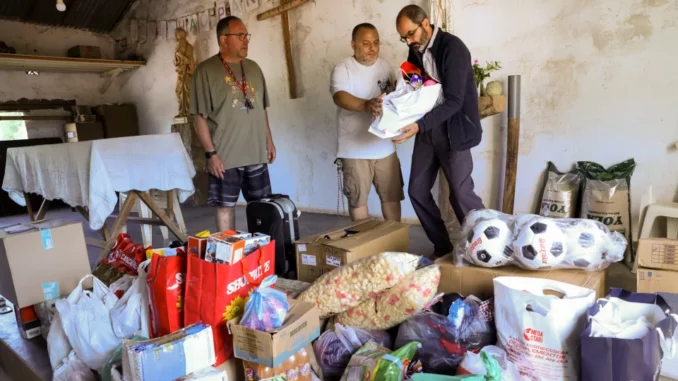
A Portuguese Catholic mission has brought hope, comfort and smiles to the villages of Gungo, helping to break the isolation of the people in this mountainous region in the Angolan province of Kwanza Sul.
The Portuguese presence in Gungo (Sumbe municipality), made up of coffee and sisal farms in colonial times, is today a matter of faith, materialized in the 1950s church that still stands there, in an advanced state of disrepair, and in the mission led by Father David Ferreira, from the diocese of Leiria-Fátima.
Seemingly touching the sky, at an altitude of over a thousand meters, the granite massifs and the effusive green of the vegetation make up a landscape that dazzles and hides the harshness of life for the 34,000 souls cared for by the Portuguese priest, spread over 2,100 square kilometers, an area roughly the size of the district of Viana do Castelo.
To get there you have to travel 130 kilometers from the capital of Kwanza Sul, Sumbe, on a tortuous and bumpy road that becomes a slippery slope as the rains turn the path into a trail of red mud.
The idea of the mission began to germinate in the 1980s, but it wasn’t until the twinning of the two dioceses – Portugal’s Leiria-Fátima and Angola’s Sumbe – in 2006 that it began to count on the permanent presence of a priest and a group of lay missionaries called Ondjoyetu (Our House, in Umbundu), who try to help the population overcome the difficulties of everyday life.
With no cell phone reception, electricity or water supply, the villagers are left to their own devices and have to travel long distances to make phone calls, go to school or buy essential goods.
